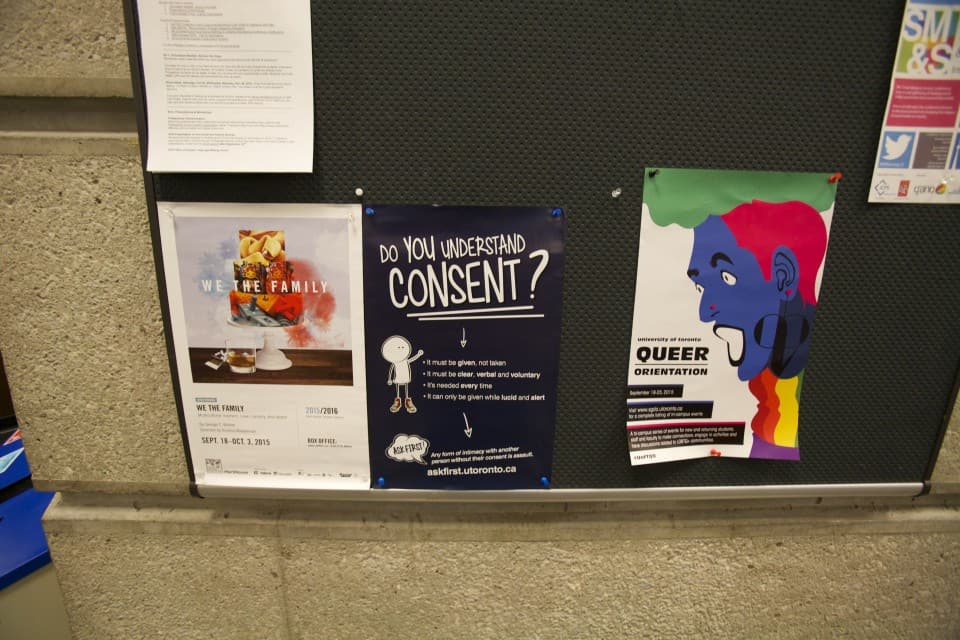“Do you understand consent?” reads a poster from the University of Toronto’s latest effort to promote consent culture on campus. The new posters are part of the Ask First campaign, which was launched last summer to replace the university’s ‘Green Dot campaign. ’
The Ask First initiative aims to build on the Canadian Federation of Students’ “No Means No Campaign,” taking it a step further by discussing personal safety, the meaning and importance of consent, and the reporting of sexual assaults. The campaign directs students to different resources, such as peer support programs.
“The material I have seen so far has been simple but effective, as well as visually appealing without being triggering,” said Celia Wandio, a fourth-year student and founder of Students Against Sexual Violence U of T. She stated that the Ask First website houses a lot of important information and praised the Office of Student Life’s effort to improve communication of their services to students.
The Ask First website gives students details of U of T security programs such as WalkSmart and WorkAlone, which provide students with a companion when walking around the St. George campus at night, including to Chestnut residence and to nearby Toronto Transit Commission (TTC) locations. UTM and UTSC have similar programs, WalkSafer and UTSC Patrol respectively.
Other safety tips tell students to plan ahead and control their situation, citing safety tips concerning alcohol, as well as encouraging students to support one another when going out.
The Ask First effort was a result of the Services and Programs working group, but the university’s Ask First efforts have been ongoing since 2001. The committee’s goal is to develop a framework, review policies and procedures, and address issues related to sexual violence on campus.
The vice-president of human resources and equity as well as the vice provost of students and first entry division established the Advisory Committee to the President and Provost on Preventing and Responding to Sexual Violence on Campus late last year. The committee consists of undergraduate students, program chairs, faculty deans, professors, and program directors on campus.
Althea Blackburn-Evans, director of news and media relations at U of T, said that the ultimate goal of the Ask First campaign is to ensure students stay safe and have healthy relationships, while also raising awareness and ensuring students understand the meaning of consent.
Currently the next step of the Ask First program is to develop more videos on consent topics, such as how to be an active bystander. There are also a number of workshops coming up, including the Speak Your Mind workshop and Building Healthy Relationships workshop. Bystander awareness workshops are also available for groups upon request.
Wandio stated that the impact of these initiatives remains to be seen. “[The] website might be great, but will people actually read and absorb the information? Will students continue to be confronted with these messages post-Orientation Week?” she said. “But the fact that all of this material has been disseminated during Orientation Week definitely shows incoming students that consent is something U of T takes seriously, so it’s a start.”


